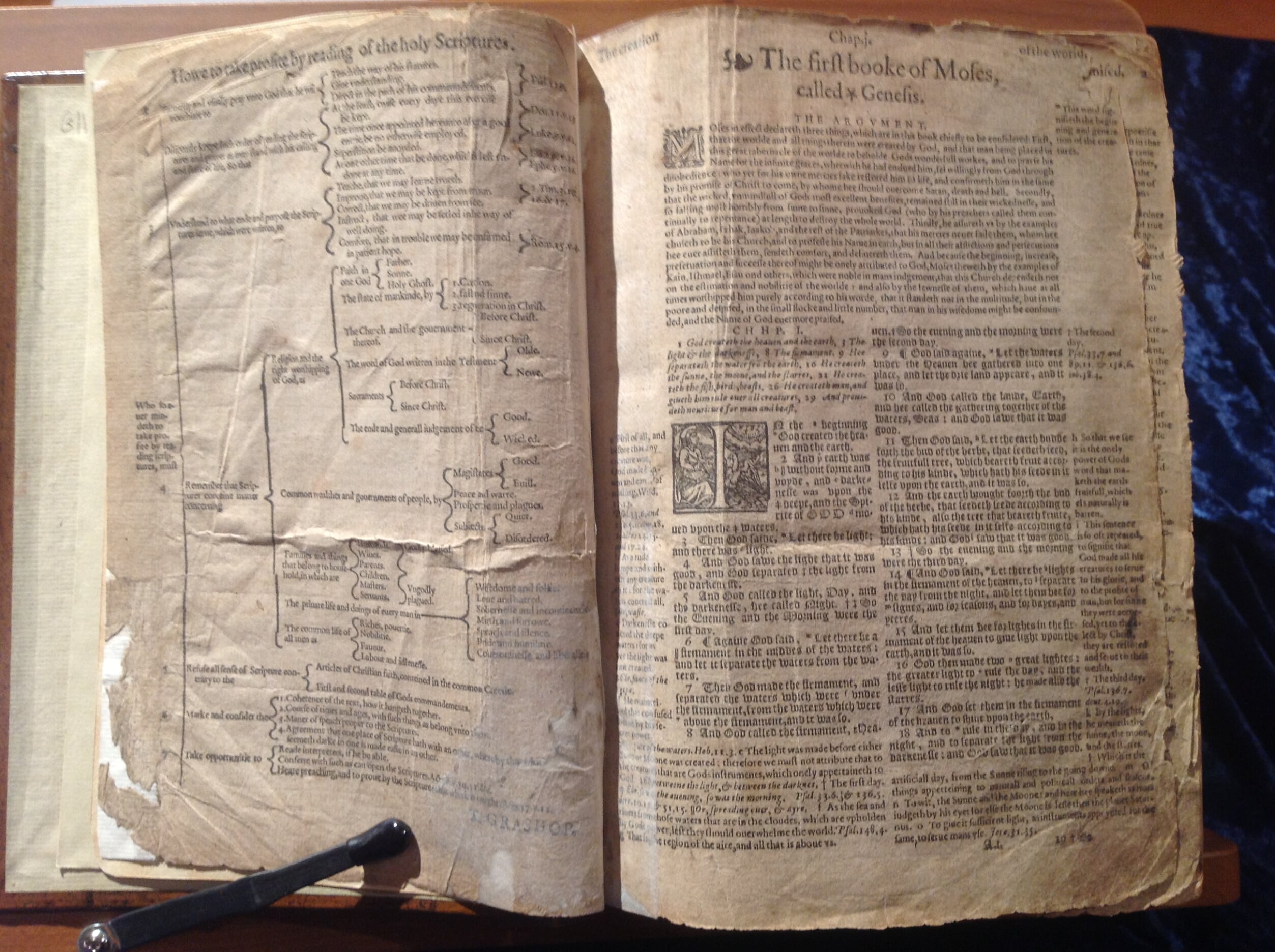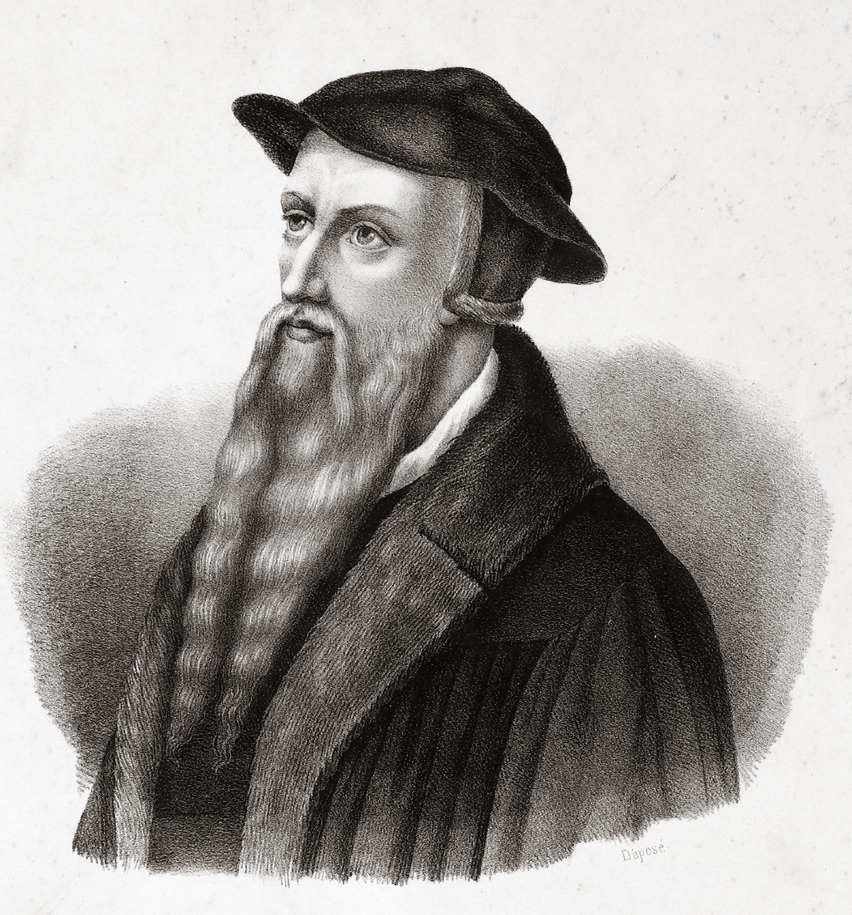|
John Calvin's View Of Scripture
John Calvin believed that Scripture is necessary for human understanding of God's revelation, that it is the equivalent of direct revelation, and that it is both "majestic" and "simple." Calvin's general, explicit exposition of his view of Scripture is found mainly in his ''Institutes of the Christian Religion''. Necessity Calvin viewed Scripture as necessary in two ways. First, he held that general revelation cannot in itself give humanity a saving knowledge of God. Although he can be known in some ways through creation he has "added the light of his Word in order that he might make himself known unto salvation."''Institutes'' I.vi.1 Calvin compares Scripture to being like a pair of |
John Calvin
John Calvin (; frm, Jehan Cauvin; french: link=no, Jean Calvin ; 10 July 150927 May 1564) was a French theologian, pastor and reformer in Geneva during the Protestant Reformation. He was a principal figure in the development of the system of Christian theology later called Calvinism, including its doctrines of predestination and of God's absolute sovereignty in the salvation of the human soul from death and eternal damnation. Calvinist doctrines were influenced by and elaborated upon the Augustinian and other Christian traditions. Various Congregational, Reformed and Presbyterian churches, which look to Calvin as the chief expositor of their beliefs, have spread throughout the world. Calvin was a tireless polemicist and apologetic writer who generated much controversy. He also exchanged cordial and supportive letters with many reformers, including Philipp Melanchthon and Heinrich Bullinger. In addition to his seminal '' Institutes of the Christian Religion'', Calv ... [...More Info...] [...Related Items...] OR: [Wikipedia] [Google] [Baidu] |
John Murray (theologian)
John Murray (14 October 1898 – 8 May 1975) was born in Bonar Bridge, Scotland. He was a Scottish-born Calvinist theologian who taught at Princeton Seminary and then left to help found Westminster Theological Seminary, where he taught for many years. He was ordained in the Orthodox Presbyterian Church in 1937. Life Murray was born in the croft of Badbea, near Bonar Bridge, in Sutherland county, Scotland. Following service in the British Army in the First World War (during which he lost an eye, serving in the famous Black Watch regiment) he studied at the University of Glasgow. Following his acceptance as a theological student of the Free Presbyterian Church of Scotland he pursued further studies at Princeton Theological Seminary under J. Gresham Machen and Geerhardus Vos, but broke with the Free Presbyterian Church in 1930 over that Church's handling of a discipline case in the Chesley, Ontario congregation concerning the Lord's Day. He taught at Princeton for a y ... [...More Info...] [...Related Items...] OR: [Wikipedia] [Google] [Baidu] |
Calvinist Theology
Calvinism (also called the Reformed Tradition, Reformed Protestantism, Reformed Christianity, or simply Reformed) is a major branch of Protestantism that follows the theological tradition and forms of Christian practice set down by John Calvin and other Reformation-era theologians. It emphasizes the sovereignty of God and the authority of the Bible. Calvinists broke from the Roman Catholic Church in the 16th century. Calvinists differ from Lutherans (another major branch of the Reformation) on the spiritual real presence of Christ in the Lord's Supper, theories of worship, the purpose and meaning of baptism, and the use of God's law for believers, among other points. The label ''Calvinism'' can be misleading, because the religious tradition it denotes has always been diverse, with a wide range of influences rather than a single founder; however, almost all of them drew heavily from the writings of Augustine of Hippo twelve hundred years prior to the Reformation. The na ... [...More Info...] [...Related Items...] OR: [Wikipedia] [Google] [Baidu] |
Theology Of John Calvin
The theology of John Calvin has been influential in both the development of the system of belief now known as Calvinism and in Protestant thought more generally. Publications John Calvin developed his theology in his biblical commentaries as well as his sermons and treatises, but the most concise expression of his views is found in his magnum opus, the '' Institutes of the Christian Religion''. He intended that the book be used as a summary of his views on Christian theology and that it be read in conjunction with his commentaries. The various editions of that work span nearly his entire career as a reformer, and the successive revisions of the book show that his theology changed very little from his youth to his death. The first edition from 1536 consisted of only six chapters. The second edition, published in 1539, was three times as long because he added chapters on subjects that appear in Melanchthon's '' Loci Communes''. In 1543, he again added new material and expanded a ... [...More Info...] [...Related Items...] OR: [Wikipedia] [Google] [Baidu] |
John Calvin Bibliography
The French Reformer John Calvin (1509–1564) was a theological writer who produced many sermons, biblical commentaries, letters, theological treatises, and other works. Although nearly all of Calvin's adult life was spent in Geneva (1536–38 and 1541–64), his publications spread his ideas of a properly reformed church to many parts of Europe and from there to the rest of the world. It is especially on account of his voluminous publications that he exerts such a lasting influence over Christianity and Western history. Calvin's first published work was an edition of the Roman philosopher Seneca's ''De Clementia'', accompanied by a commentary demonstrating a thorough knowledge of antiquity. His first theological work, the ''Psychopannychia'', attempted to refute the doctrine of soul sleep as promulgated by Christians whom Calvin called " Anabaptists." He finished it in 1534 but, on the advice of friends, didn't publish it until 1542. The work demonstrates that since his conversion ... [...More Info...] [...Related Items...] OR: [Wikipedia] [Google] [Baidu] |
Accommodation (religion)
Accommodation (or condescension) is the theological principle that God, while being in His nature unknowable and unreachable, has nevertheless communicated with humanity in a way that humans can understand and to which they can respond. The concept is that scripture has accommodated, or made allowance for, the original audience's language and general level of understanding. Often included in these ideas is the notion of human sinfulness or capacity; so in other words God accommodates himself to the human capacities of those to whom biblical revelation is given. History The history of the concept of accommodation reaches back to ancient Jewish biblical interpretation. It was taken up and developed by Christian theologians like Origen and Augustine, which ensured its continuance into the work of medieval biblical exegetes. Erasmus of Rotterdam employed it as did numerous Reformation theologians, both Roman Catholic and Protestant. The sixteenth-century Protestant Reformer John Calvi ... [...More Info...] [...Related Items...] OR: [Wikipedia] [Google] [Baidu] |
Continuum Publishing
Continuum International Publishing Group was an academic publisher of books with editorial offices in London and New York City. It was purchased by Nova Capital Management in 2005. In July 2011, it was taken over by Bloomsbury Publishing. , all new Continuum titles are published under the Bloomsbury name (under the imprint Bloomsbury Academic). History Continuum International was created in 1999 with the merger of the Cassell academic and religious lists and the Continuum Publishing Company, founded in New York in 1980. The academic publishing programme was focused on the humanities, especially the fields of philosophy, film and music, literature, education, linguistics, theology, and biblical studies. Continuum published Paulo Freire's seminal '' Pedagogy of the Oppressed''. Continuum acquired Athlone Press, which was founded in 1948 as the University of London publishing house and sold to the Bemrose Corporation in 1979. In 2003, Continuum acquired the London-based Hamble ... [...More Info...] [...Related Items...] OR: [Wikipedia] [Google] [Baidu] |
Infidel
An infidel (literally "unfaithful") is a person accused of disbelief in the central tenets of one's own religion, such as members of another religion, or the irreligious. Infidel is an ecclesiastical term in Christianity around which the Church developed a body of theology that deals with the concept of infidelity, which makes a clear differentiation between those who were baptized and followed the teachings of the Church versus those who are outside the faith. The term ''infidel'' was used by Christians to describe those perceived as the enemies of Christianity. After the ancient world, the concept of otherness, an exclusionary notion of the outside by societies with more or less coherent cultural boundaries, became associated with the development of the monotheistic and prophetic religions of Judaism, Christianity, and Islam (cf. pagan). In modern literature, the term infidel includes in its scope atheists, polytheists, animists, heathens, and pagans. A willingness t ... [...More Info...] [...Related Items...] OR: [Wikipedia] [Google] [Baidu] |
Westminster John Knox Press
Westminster John Knox Press is an American publisher of Christian books located in Louisville, Kentucky and is part of Presbyterian Publishing Corporation, the publishing arm of the Louisville, Kentucky-based Presbyterian Church (U.S.A.). Their publishing focus is on books in: History Westminster John Knox Press is the result of a merger in 1988 of the publishing companies Westminster Press and John Knox Press. Westminster John Knox Press publishes scholarly works in religion and theology for the academic community, for congregations, and resources for teaching and ruling elders. They also publish "nationally recognized trade books for general readers, and essential resources for ministry and the life of faith." WJK currently has over 1,600 books in print, and has been publishing books and other materials since 1838. In 2001 they had to reduce staff by 20%. References External links * Christian publishing companies Book publishing companies of the United States Presbyterian ... [...More Info...] [...Related Items...] OR: [Wikipedia] [Google] [Baidu] |
Eerdmans
William B. Eerdmans Publishing Company is a religious publishing house based in Grand Rapids, Michigan. Founded in 1911 by Dutch American William B. Eerdmans (November 4, 1882 – April 1966) and still independently owned with William's daughter-in-law Anita Eerdmans as president, Eerdmans has long been known for publishing a wide range of Christian and religious books, from academic works in Christian theology, biblical studies, religious history, and reference to popular titles in spirituality, social and cultural criticism, and literature. William B. Eerdmans William Eerdmans was born "Wiltje Eerdmans" in Bolsward, the son of Dirkje Pars and the textile manufacturer Bernardus Dirk Eerdmans. He immigrated to the United States in 1902, heading for Grand Rapids, Michigan, a center of 19th-century Dutch immigration and Calvinism. In 1911 with his partner, Brant Sevensma, Eerdmans formed the Eerdmans–Sevensma book dealership, specializing in theological textbooks. In 1912 ... [...More Info...] [...Related Items...] OR: [Wikipedia] [Google] [Baidu] |
Bible
The Bible (from Koine Greek , , 'the books') is a collection of religious texts or scriptures that are held to be sacred in Christianity, Judaism, Samaritanism, and many other religions. The Bible is an anthologya compilation of texts of a variety of forms originally written in Hebrew, Aramaic, and Koine Greek. These texts include instructions, stories, poetry, and prophecies, among other genres. The collection of materials that are accepted as part of the Bible by a particular religious tradition or community is called a biblical canon. Believers in the Bible generally consider it to be a product of divine inspiration, but the way they understand what that means and interpret the text can vary. The religious texts were compiled by different religious communities into various official collections. The earliest contained the first five books of the Bible. It is called the Torah in Hebrew and the Pentateuch (meaning ''five books'') in Greek; the second oldest part wa ... [...More Info...] [...Related Items...] OR: [Wikipedia] [Google] [Baidu] |
Spectacles
Glasses, also known as eyeglasses or spectacles, are vision eyewear, with lenses (clear or tinted) mounted in a frame that holds them in front of a person's eyes, typically utilizing a bridge over the nose and hinged arms (known as temples or temple pieces) that rest over the ears. Glasses are typically used for vision correction, such as with reading glasses and glasses used for nearsightedness; however, without the specialized lenses, they are sometimes used for cosmetic purposes. Safety glasses provide eye protection against flying debris for construction workers or lab technicians; these glasses may have protection for the sides of the eyes as well as in the lenses. Some types of safety glasses are used to protect against visible and near-visible light or radiation. Glasses are worn for eye protection in some sports, such as squash. Glasses wearers may use a strap to prevent the glasses from falling off. Wearers of glasses that are used only part of the time may have t ... [...More Info...] [...Related Items...] OR: [Wikipedia] [Google] [Baidu] |





.jpg)
